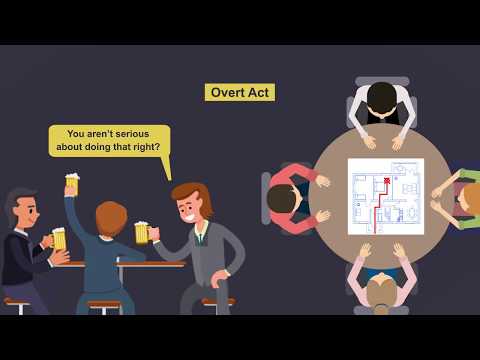
Examples of Criminal Law in Healthcare: 3 Instances of Legal Violations in the Medical Field
Dear readers,
Welcome to this informative article that delves into the intriguing world of criminal law in healthcare. Before we delve into the three instances of legal violations in the medical field, it is important to note that the information provided here serves as a general overview. It is always recommended to cross-reference with other reliable sources and consult legal advisors for specific cases or questions.
📋 Content in this article
Healthcare professionals are entrusted with the well-being and safety of their patients. However, there are unfortunate instances where individuals deviate from their ethical and legal obligations, resulting in criminal violations within the healthcare system. Understanding these examples can shed light on the importance of upholding the law and preserving the integrity of the medical field.
Understanding Criminal Law Violations in the Context of Healthcare
Understanding Criminal Law Violations in the Context of Healthcare
In the complex world of healthcare, there are instances where legal violations can occur, leading to criminal law consequences. It is crucial to understand the nature of these violations and their implications. This article aims to provide an overview of criminal law violations in the healthcare field, highlighting three specific instances to illustrate the concepts.
1. Fraudulent Billing Practices
One common example of criminal law violations in healthcare involves fraudulent billing practices. This occurs when healthcare providers intentionally submit false claims or inflate the cost of services provided to patients. Such actions not only harm the healthcare system but also deprive patients of necessary care. Fraudulent billing practices can lead to criminal charges, including healthcare fraud, insurance fraud, and violation of federal statutes such as the False Claims Act.
2. Prescription Drug Abuse
Prescription drug abuse has become a significant issue within the healthcare industry. Healthcare professionals who unlawfully prescribe controlled substances or engage in illegal drug distribution can face severe legal consequences. These violations not only endanger patients’ health but also contribute to the larger societal problem of drug addiction.
3. Patient Abuse and Neglect
Patient abuse and neglect are grave violations in the healthcare field that can result in criminal charges. These offenses involve intentional harm or failure to provide proper care, leading to physical, emotional, or psychological harm to patients.
Understanding Legal Challenges in Healthcare: A Closer Look at Common Examples
Understanding Legal Challenges in Healthcare: A Closer Look at Common Examples
In the healthcare industry, legal challenges can arise due to various factors such as regulatory compliance, patient care, and ethical dilemmas. It is crucial for healthcare professionals and organizations to have a comprehensive understanding of these challenges in order to navigate the complex landscape of healthcare law. This article aims to shed light on three common examples of legal violations in the medical field, specifically criminal law violations, and provide insights into the potential consequences.
1. Fraud and Abuse:
Fraud and abuse are serious offenses that can lead to severe legal consequences for healthcare providers and organizations. This encompasses a wide range of activities, including
,
, and
. These actions not only violate federal laws such as the False Claims Act and the Anti-Kickback Statute but also erode the trust between healthcare providers and patients. Convictions for fraud and abuse can result in hefty fines, imprisonment, loss of professional licenses, and reputational damage.
2. Medical Malpractice:
Medical malpractice refers to negligent or substandard care provided by healthcare professionals, leading to harm or injury to patients. It occurs when a healthcare provider deviates from the accepted standard of care, causing harm that could have been avoided. Examples of medical malpractice may include
,
, or
. Victims of medical malpractice may pursue legal action to seek compensation for damages such as medical expenses, lost wages, and pain and suffering. Healthcare providers found guilty of medical malpractice may face financial penalties, loss of professional reputation, and potential license revocation.
3. Drug Diversion:
Drug diversion refers to the illegal distribution or misuse
Title: Examples of Criminal Law in Healthcare: 3 Instances of Legal Violations in the Medical Field
Introduction:
In the complex and highly regulated field of healthcare, it is crucial for individuals, professionals, and organizations to have a comprehensive understanding of criminal law as it applies to their practice. Compliance with legal obligations is paramount to ensure patient safety, maintain professional integrity, and avoid potentially serious consequences. This article will explore three instances of legal violations in the medical field, emphasizing the importance of staying current on this topic.
1. Fraudulent Billing Practices:
One commonly encountered violation in healthcare involves fraudulent billing practices. Healthcare providers may engage in billing schemes such as overbilling, billing for services not provided, or submitting false claims to insurance companies or government healthcare programs. These actions can result in substantial financial losses for patients, insurers, and the healthcare system as a whole. Moreover, engaging in fraudulent billing practices constitutes a violation of criminal law and can lead to civil and criminal penalties for the individuals involved.
2. Prescription Drug Abuse:
Prescription drug abuse is another critical area where criminal law intersects with healthcare. Physicians and other healthcare professionals may face legal consequences if they engage in prescribing practices that deviate from accepted medical standards, particularly when it involves controlled substances. Overprescribing, prescribing to known drug seekers, or prescribing medications without a legitimate medical purpose are all examples of illegal activities that may result in criminal charges. It is important for healthcare providers to stay informed about state and federal laws regarding prescription drugs to ensure they are practicing within legal boundaries.
3. Patient Abuse and Neglect:
Patient abuse and neglect are extremely serious violations that can result in both civil and criminal liability for healthcare professionals. The mistreatment or neglect of patients not only violates ethical and professional obligations but also may constitute criminal acts depending on the severity and intent of the actions. Examples of abusive conduct include physical assault, sexual assault, emotional abuse, or intentionally withholding necessary care.
